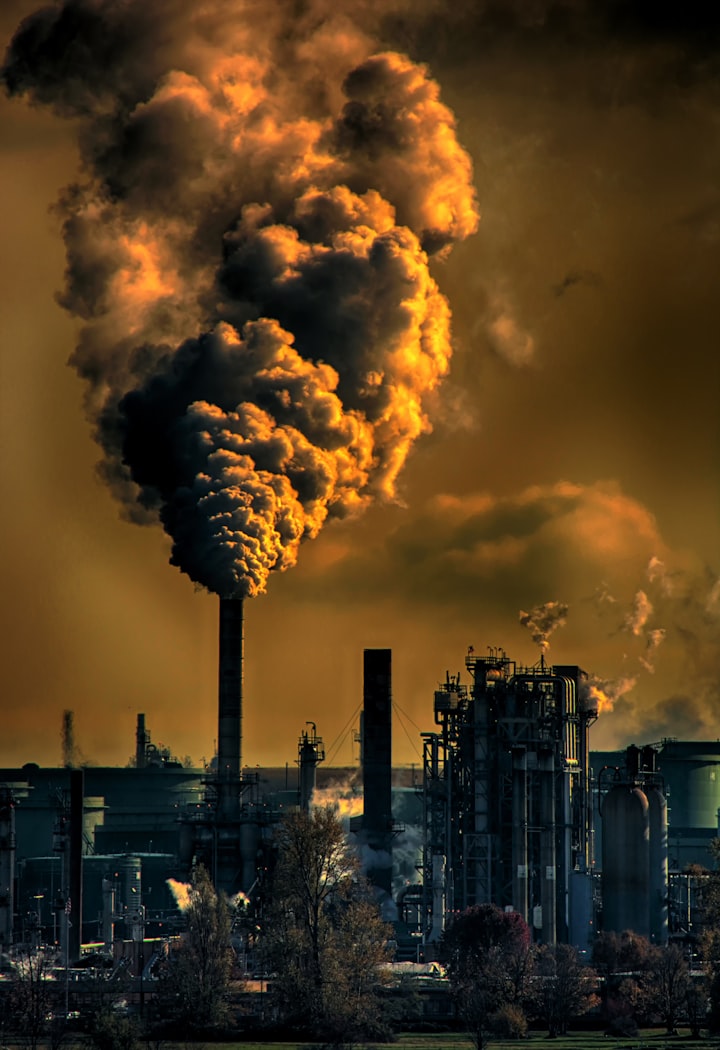
Few issues in the history of humanity are as menacing as the threat posed by climate change. This problem is the result of centuries of unrestrained resource extraction from our planet by humans, not a random event. There has never been a more pressing need to address this issue as we teeter on the edge of permanent ecological harm. In an attempt to understand the complexities of climate change, examine its effects, and map out a path for a more sustainable future, this article sets out on a perilous trek through this complex terrain.
1. Comprehending Climate Change Science:
The fundamental fact that human activity is the main cause of the Earth's exceptional rate of warming is at the center of the climate problem. Deforestation, industrial activities, and the burning of fossil fuels emit greenhouse gases into the atmosphere, which thickens the atmosphere, trapping heat and upsetting the delicate balance of our planet's climatic systems. There is no doubt about the science underlying climate change, and most climate scientists agree that the time to take action is now.
2. Effects on the Environment and Society: The effects of climate change are extensive and diverse, encompassing a wide range of environmental and socioeconomic implications in addition to simple temperature rises. The repercussions of climate change are felt everywhere in the world, from the melting of polar ice caps and the acidity of oceans to the increase of extreme weather events and the uprooting of communities. The effects intensify preexisting disparities and susceptibilities, exacerbating the agony of individuals with the least capacity for adjustment.
3. Challenges and barriers to Addressing Climate Change: A multitude of challenges and barriers have impeded significant action toward addressing climate change, despite the overwhelming evidence and consensus on its reality. At the national and international levels, political inertia caused by strong vested interests in the fossil fuel industry has impeded progress on climate legislation. Furthermore, because the issue is global in scope, states must coordinate their efforts and cooperate, which is a difficult undertaking further complicated by opposing geopolitical agendas.
4. Opportunities for Mitigation and Adaptation: Despite the seemingly overwhelming scope of the climate crisis, there are many of options for adaptation and mitigation that can lessen its effects. Investing in sustainable infrastructure, increasing energy efficiency, and switching to renewable energy sources are just a few strategies that can lower greenhouse gas emissions and increase resistance to the effects of climate change. Reforestation and ecosystem restoration are two examples of nature-based solutions that provide more ways to mitigate climate change while boosting biodiversity and ecosystem services.
5. The Part That People and Communities Play:
The importance of people and communities in the fight against climate change cannot be emphasized in the face of such overwhelming obstacles. Every single one of us can contribute to lowering our carbon footprint, pushing for changes in laws, and building community resilience. Individuals can aid in the communal efforts to address the situation by adopting sustainable lifestyle choices, cutting back on consumption, and endorsing programs that promote climate change. Similarly, community-based programs, grassroots movements, and educational initiatives play a crucial role in increasing public awareness and spurring localized action.
As we contemplate the enormity of the climate crisis, it becomes abundantly clear that business as usual is no longer an option. The time for complacency and half-measures has passed; we stand at a crossroads, faced with a choice between inertia and action, between destruction and renewal. Yet, within this crucible of crisis lies the seeds of opportunity – the opportunity to forge a new path forward, one that is rooted in sustainability, equity, and resilience. By embracing innovation, cooperation, and a shared sense of responsibility, we can navigate the complexities of climate change and build a more sustainable and equitable future for generations to come. The journey will be fraught with challenges, but the destination – a world where humanity and nature coexist in harmony – is well worth the effort.
About the Creator
Furkan Ö.
I am a young writer who can write on any topic. I may not be able to change the world with my words, but I can stir thoughts with my writing. I will continue to write for my followers, fans, and future readers.






Comments
There are no comments for this story
Be the first to respond and start the conversation.